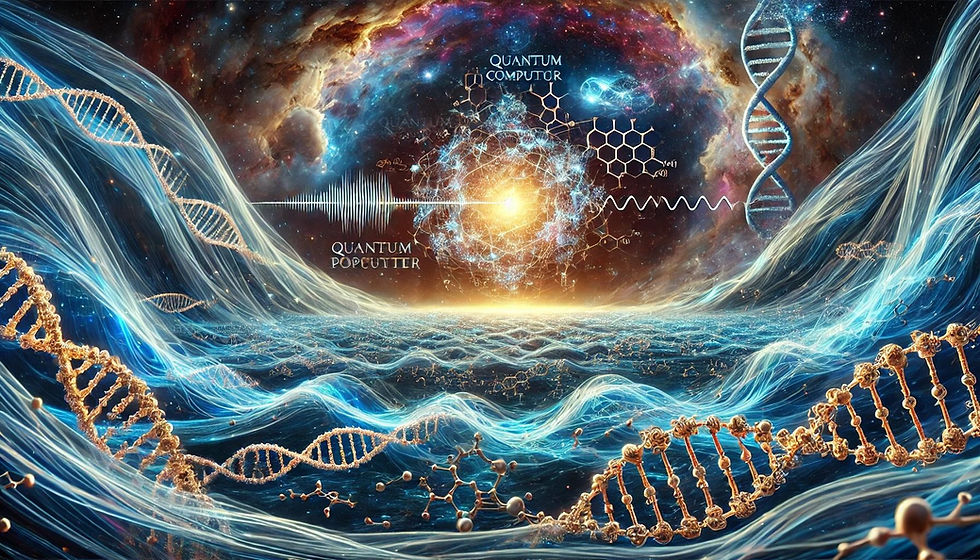Astrology and the Consciousness Field
- nthnkgn
- Sep 8, 2025
- 2 min read
Astrology has often been dismissed as superstition, a relic of an age before science. And yet, its persistence across cultures and millennia hints that it may not be mere fantasy but rather an early symbolic mapping of truths that modern science is only beginning to touch.
In its classical form, astrology claims that the positions of planets at birth determine personality and fate. Each alignment is given symbolic meaning: Mars for action, Venus for

love, Saturn for discipline. Skeptics rightly ask: how could distant planets exert causal forces on human beings across the abyss of space? No measurable physical mechanism has ever been found.
But if we begin from a different foundation—that consciousness is fundamental—the picture changes. In this view, the universe itself is a field of consciousness. Stars, planets, and people are not separate objects interacting across empty space, but expressions of the same underlying field. Planetary alignments, then, are not external forces shaping human lives. Instead, they are resonant patterns within the consciousness field—macro-scale harmonics that echo through every part of the system, including us.
Just as fireflies flash in unison or pendulums on the same beam synchronize, consciousness may be sensitive to rhythms and alignments across vast scales. When planets form particular geometries, they create resonant “chords,” and humanity, as part of the same field, may feel these harmonics as shifts in mood, creativity, or collective unrest. Astrology’s archetypes—Jupiter as expansion, Saturn as limitation, Venus as harmony—can be reinterpreted not as magical influences but as archetypal signatures of the consciousness field itself, activated when cosmic patterns resonate.
Even modern medicine and folklore leave traces of this connection. Hospitals and emergency rooms often prepare for the full moon, reporting increases in psychiatric admissions or erratic behavior. Scientific studies give mixed results, but some evidence suggests humans still respond to lunar cycles. This is not surprising if we evolved entirely within such cycles: the full moon may act as a recurring informational “pulse” in Earth’s consciousness field, one that organisms remain subtly attuned to.
From the perspective of information theory, the solar system is not merely a mechanical arrangement of bodies in orbit. It is part of a grand computation in motion, with each alignment a shift in the cosmic code. Planetary positions and human experience are not linked by direct causality but by parallel expression: both are outputs of the same informational substrate, the same self-simulating consciousness that generates reality itself.
Seen in this light, astrology was never about predicting the future with precision. It was, and remains, a poetic attempt to read the harmonics of consciousness, to sense how the macrocosm and microcosm mirror one another. The stars do not control us, nor do they dictate our destinies. Rather, they reflect us—because they and we are woven from the same fabric of mind.


Comments